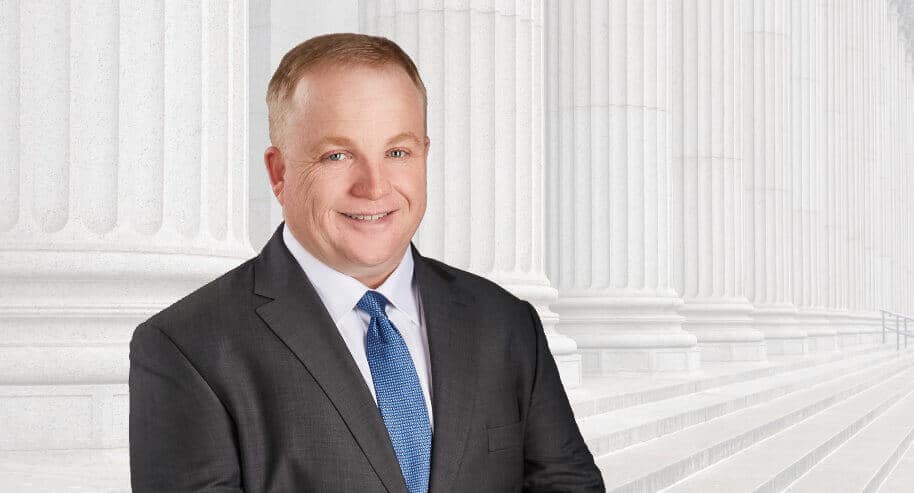
Adult guardianship allows individuals to have their needs met if they are deemed incompetent by the court. Both the elderly and others who are found to be incompetent are sometimes unable to care for themselves. Guardianship allows someone else to take responsibility for the needs of the incompetent individual to ensure they are cared for.
If your loved one is unable to care for themselves, you may be considering adult guardianship. Our compassionate North Carolina guardianship lawyers at Breeden Law Office can answer your questions and help you obtain the best possible outcome for everyone involved. Breeden Law Office has several convenient locations for legal guardianship in Smithfield, Garner, Raleigh, and Angier.
Call attorney Jonathan Breeden today at (919) 661-4970.
A guardianship is a legal relationship wherein a party is appointed by the court to care for an adult, or “ward,” who has been declared incompetent. A guardian may be an individual, a corporation, or a public agent. For adults, a friend or family member often serves as a guardian of those deemed incompetent. However, it is often common for the North Carolina Department of Social Services to serve as a guardian for an adult.
If an adult executes a Power of Attorney (POA) before being declared legally incompetent (or the POA has been declared null and void), it may name people who have control over various areas of the incompetent person’s life, such as health care or finances. However, if no POA has been executed, a legal guardian can step in and make medical and other decisions on behalf of the adult who is incompetent.
Before you consider starting incompetency proceedings in regard to a friend or loved one, it is important to look at when guardianship over an adult is typically appropriate. Some common situations that call for legal guardianship include when:
Guardianship proceedings are not appropriate when your family member is capable of making decisions regarding their own care, but you disagree with their choices. It can be difficult to watch a loved one struggle, be irresponsible, or take steps in life you do not approve of. However, guardianship is a significant step that should only be pursued when it is absolutely necessary for your loved one’s health, well-being, and safety.
Legal guardians make sure the needs of their ward are met. They are responsible for the care and comfort of the person who has been deemed incompetent. A guardian is responsible for:
Additionally, a legal guardian must periodically file status reports and accountings with the court to ensure their ward is not being taken advantage of and the incompetent person’s needs are being met.
Related Reading: Caregiver Resources
Although a legal guardian is responsible for their ward’s finances, they are not expected to personally bear the financial obligations of their ward. They may be reimbursed by the ward’s estate for any out-of-pocket expenses that are incurred while carrying out their duties as a guardian. Guardians are also not liable for debts of the ward or any damages that result from medical treatment to which the guardian authorized.
A guardianship may be terminated a number of ways, including:
Under North Carolina General Statute (G.S.) §35A-1101, North Carolina defines an “incompetent adult” as “an adult or emancipated minor who lacks sufficient capacity to manage the adult’s own affairs or to make or communicate important decisions concerning the adult’s person, family, or property[.]” The person’s capacity may be compromised by:
A person must be declared incompetent by a court. Generally, this is done when a party files a petition with the clerk of the superior court to declare another party incompetent. You cannot have a person declared incompetent just because they make poor financial decisions or other decisions with which you don’t agree. A person must be a threat to their own safety and security before a party can step in and become a legal guardian.
Because incompetency is determined on a case-by-case basis, becoming a legal guardian can be difficult. After a petition is filed with the court, the clerk will schedule a hearing wherein the petitioner and the respondent must present evidence of incompetency, including witness testimony and documents. All parties will be subjected to questioning by attorneys and the judge. As a North Carolina guardianship attorney Jonathan Breeden can help you navigate the adult guardianship process.
If you believe your loved one is incompetent and needs someone to care of them and make significant decisions on their behalf, then you may begin guardianship proceedings. Navigating this legal matter can be difficult, particularly since you must follow all of your county’s relevant court procedures.
The matter can also become complicated if your loved one or other family members disagree with your stance. Instead of attempting to navigate this process yourself, it is best to work with an experienced incompetency attorney who can outline the guardianship process and explain your rights and your loved one’s potential defenses.
You must file a complete petition for guardianship with the Clerk of the Superior Court. Immediately following filing this petition, you must properly serve the allegedly incompetent adult, otherwise known as the respondent. You may also need to serve the respondent’s closest family members. For instance, if you are attempting to gain guardianship over an elderly parent, you may need to serve your parent’s surviving spouse, siblings, or your own adult siblings.
Incompetency proceedings are not one-sided. The respondent is entitled to their own lawyer, and the clerk of the court will appoint them a guardian ad litem (GAL). This is a professional who will review the situation and meet with the respondent in order to evaluate what may be in their best interests. The GAL represents the respondent and reports their findings to the clerk.
Since you are alleging the respondent is incompetent, you will need evidence. This typically includes one or more physician’s statements. Depending on the situation, the clerk may require one or more additional evaluations of the respondent prior to the hearing. You or the respondent can also request additional evaluations and receive written reports of the results. Keep in mind that the respondent will also have the opportunity to present evidence of their competency during the hearing.
The clerk of the court acts as the judge for an incompetency proceeding, though the respondent can request a jury. The clerk will carefully review the evidence presented by both you and the respondent to determine if the respondent is incompetent.
The clerk does not have to appoint you simply because you filed the petition.
Once a competent adult is appointed guardian, they will receive a written order regarding the appointment, which will outline the powers and duties.

If you feel that your parent or other loved one is no longer capable of making safe, sound decisions and you would like to help, becoming a guardian might be right for you. You should take the time to discuss the process with a knowledgeable North Carolina guardianship attorney.
Attorney Jonathan Breeden has the knowledge and experience to help you become a legal guardian. Call Breeden Law Offices today at (919) 661-4970 to talk about the guardianship procedure.
Call Breeden Law Office today:
Call (919) 661-4970